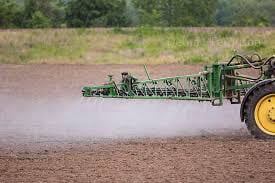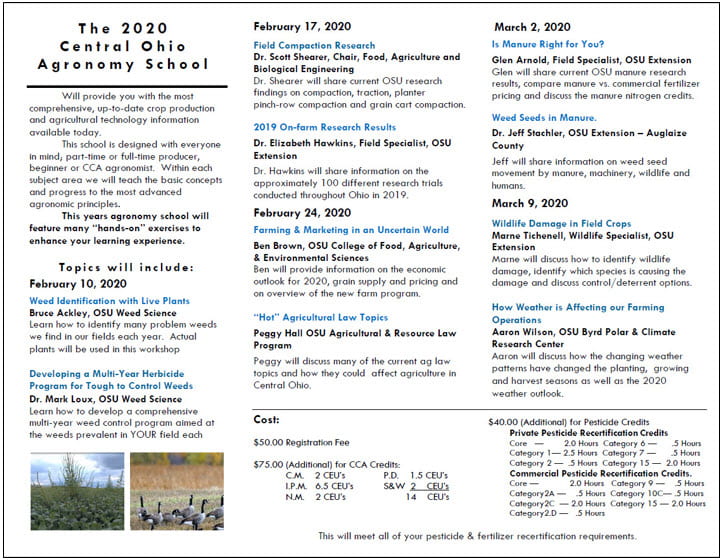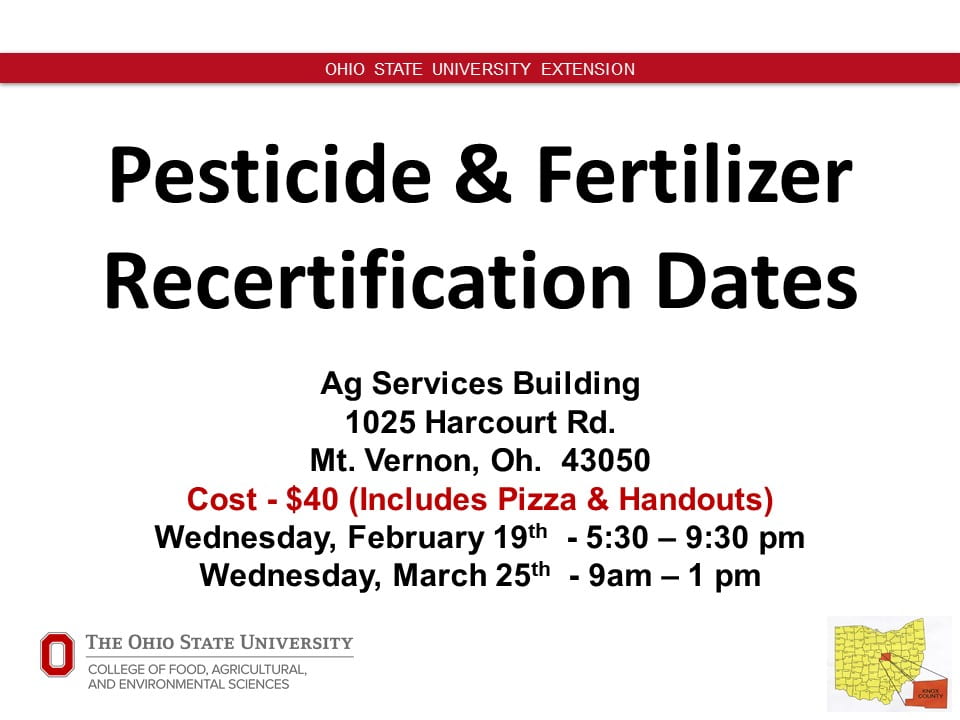 The temporary online trainings during the COVID-19 Pandemic allow applicators and fertilizer certificate holders to meet their continuing education requirements.
The temporary online trainings during the COVID-19 Pandemic allow applicators and fertilizer certificate holders to meet their continuing education requirements.
REYNOLDSBURG, Ohio (June 29, 2020) – During the COVID-19 Pandemic, the Ohio Department of Agriculture (ODA), is partnering with the Ohio State University Extension Pesticide Safety Education Program (PSEP) to temporarily provide online recertification for pesticide applicators and fertilizer certificate holders whose licenses expired in spring of 2020. The online recertification will be available Monday, July 6. For commercial applicators, it will be available August 10. For more information or to register for the online recertification, visit pested.osu.edu/onlinerecert.
The online option allows private applicators and fertilizer certificate holders due for training by March 31, 2020 and commercial applicators due for training by September 30, 2020 to meet their continuing education requirements. The cost for online training is $35 for private applicators and $10 for fertilizer certification. The price per credit hour for commercial applicators is $15. If you don’t know your license number, please call ODA at 614-728-6987, choose option 1.
Applicators are still required to meet their recertification requirements to renew licenses and certifications. As a result of HB 197, applicators have until 90 days after the emergency is over or December 1, whichever comes first, to complete their requirements. Recertification status can be checked online at https://agri.ohio.gov/wps/portal/gov/oda/divisions/plant-health/pesticides/recert-search. Applicators must also submit a completed renewal application and pay an additional fee to the ODA for licensure.
For additional information regarding online recertification, please contact the Ohio Department of Agriculture at 614-728-6987, and press 1 for licensing recertification or the OSU Pesticide Safety Education Program at 614-292-4070.
Commercial applicators must earn at least five recertification credit hours every three years, and private applicators must earn at least three recertification credit hours every three years. One hour (60 minutes) must be earned by taking one or more core education classes, one half-hour (30 minutes) of education in each category on the license, and the remaining time requirement can be met by attending classes in any category.








